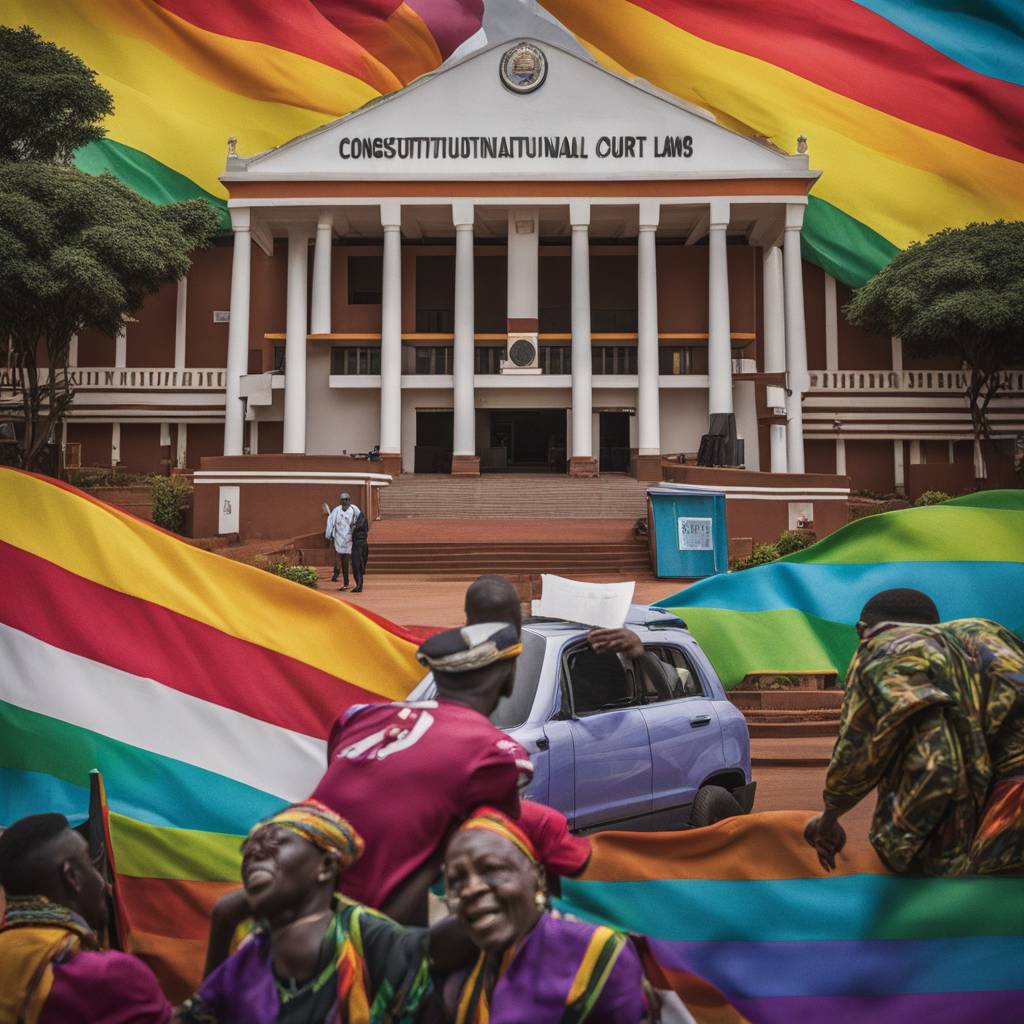Despite international condemnation, the Constitutional Court in Uganda has rejected a petition seeking to annul the Anti-Homosexuality Act 2023, which imposes severe penalties for consensual same-sex relations, including up to life in prison and death in ‘aggravated homosexuality’ cases. The court found that some sections of the law violated the right to health, privacy, and freedom of religion but did not block or suspend the law. The ruling, delivered by Justice Richard Buteera, stated that the court would not nullify the law in its entirety or grant a permanent injunction against its enforcement.
The law was adopted in May and has sparked outrage among the LGBTQ community, rights campaigners, the United Nations, and Western nations. Despite this backlash, the law enjoys broad popular support in Uganda, with government officials accusing the West of attempting to pressure Africa into accepting homosexuality. The Constitutional Court in Kampala began hearing the case in December after a petition was brought by two law professors, ruling party legislators, and human rights activists. They argued that the law violates fundamental rights guaranteed by Uganda’s Constitution, such as freedom from discrimination and the right to privacy, and contravenes international human rights commitments.
Uganda, a conservative and predominantly Christian country in East Africa, has a history of intolerance towards homosexuality. The government has resisted pressure from rights organizations, the UN, and foreign governments to repeal the law. In August, the World Bank announced the suspension of new loans to Uganda due to the law contradicting the institution’s values. Minister of State for Foreign Affairs Henry Okello Oryem accused the West of trying to coerce Uganda into accepting same-sex relationships using aid and loans. This resistance to external pressure was also seen in 2014 when international donors cut aid to Uganda after a bill seeking to impose life sentences for homosexual relations was approved by President Yoweri Museveni.
The Anti-Homosexuality Act 2023 has been criticized for violating fundamental human rights and international human rights law. The law imposes harsh penalties on individuals engaging in consensual same-sex relations and criminalizes ‘aggravated homosexuality’, which is punishable by death. Despite the Constitutional Court’s ruling that some sections of the law violate the right to health, privacy, and freedom of religion, it has not been annulled or suspended. The court’s decision to uphold the law has resulted in continued concerns about the protection of LGBTQ individuals in Uganda and the impact of the law on their rights and well-being.
The rejection of the petition seeking to annul the Anti-Homosexuality Act 2023 highlights the ongoing challenges facing the LGBTQ community in Uganda. The law’s strict penalties for same-sex relations and the government’s defiance in the face of international pressure raise concerns about the protection of human rights in the country. The court’s ruling has sparked further debate about the balance between national sovereignty and international human rights standards, with Uganda’s government maintaining its commitment to upholding the law despite criticism from the international community. As the situation unfolds, advocacy efforts to repeal the law and protect the rights of LGBTQ individuals in Uganda are likely to continue, with a focus on promoting equality, non-discrimination, and respect for human rights for all.













